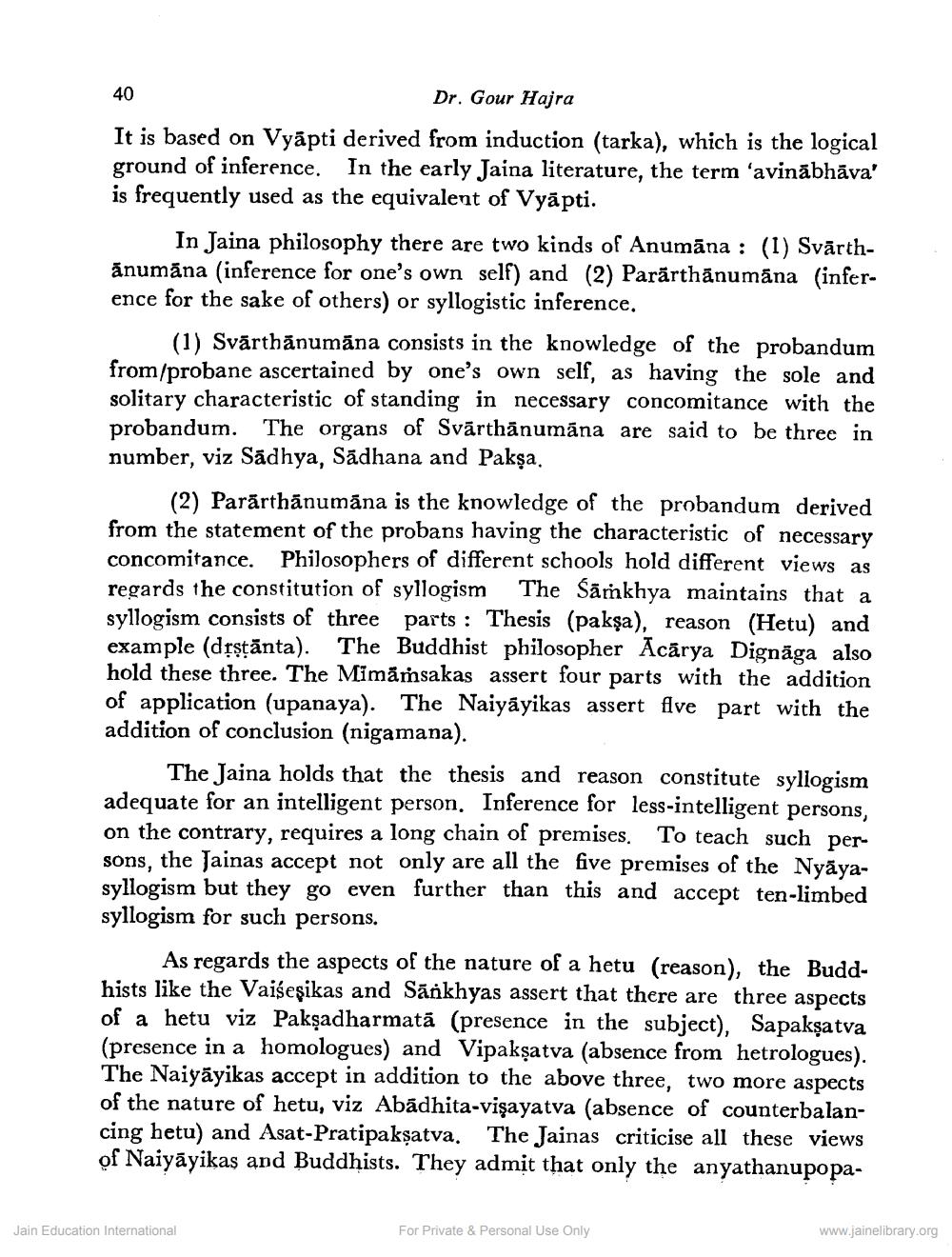________________
40
Dr. Gour Hajra It is based on Vyāpti derived from induction (tarka), which is the logical ground of inference. In the early Jaina literature, the term 'avinābhāva' is frequently used as the equivalent of Vyäpti.
In Jaina philosophy there are two kinds of Anumāna : (1) Svārthănumāna (inference for one's own self) and (2) Parārthānumāna (inference for the sake of others) or syllogistic inference.
(1) Svārthānumāna consists in the knowledge of the probandum from/probane ascertained by one's own self, as having the sole and solitary characteristic of standing in necessary concomitance with the probandum. The organs of Svārthänumāna are said to be three in number, viz Sadhya, Sadhana and Paksa.
(2) Parărthānumāna is the knowledge of the probandum derived from the statement of the probans having the characteristic of necessary concomitance. Philosophers of different schools hold different views as regards the constitution of syllogism The Sāṁkhya maintains that a syllogism consists of three parts : Thesis (pakşa), reason (Hetu) and
kample (drstānta). The Buddhist philosopher Acārya Dignaga also hold these three. The Mimāṁsakas assert four parts with the addition of application (upanaya). The Naiyāyikas assert flve part with the addition of conclusion (nigamana).
The Jaina holds that the thesis and reason constitute syllogism adequate for an intelligent person. Inference for less-intelligent persons, on the contrary, requires a long chain of premises. To teach such persons, the Jainas accept not only are all the five premises of the Nyāya
but they go even further than this and accept ten-limbed syllogism for such persons.
As regards the aspects of the nature of a hetu (reason), the Buddhists like the Vaiseşikas and Sārkhyas assert that there are three aspects of a hetu viz Pakşadharmată (presence in the subject), Sapakşatva (presence in a homologues) and Vipaksatva (absence from hetrologues). The Naiyāyikas accept in addition to the above three, two more aspects of the nature of hetu, viz Abādhita-vişayatva (absence of counterbalancing hetu) and Asat-Pratipaksatva. The Jainas criticise all these views of Naiyāyikas and Buddhists. They admit that only the anyathanupopa
.
Jain Education International
For Private & Personal Use Only
www.jainelibrary.org




